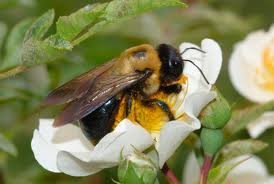
New Research Links Pesticide Use to Smaller Bumble Bees
Pesticide exposure could result in smaller worker bumblebees, according to a new study by the Royal Holloway University of London. The research, published recently in the Journal of Applied Ecology, showed that prolonged exposure to a pyrethroid pesticide reduces the size of individual bees produced by a colony.
It is the first study to examine the impact of pyrethroid pesticides, used on flowering crops to prevent damage by insects, across the entire lifecycle of bumblebees.
The researchers considered that the size of workers is likely to be a key component of colony success, as smaller bees are less efficient at collecting pollen from flowers.
Bee colonies were tracked over a four-month period, recording their size and weighing bees on micro-scales, as well as monitoring the number of queens and male bees produced by the colony.
“We already know that larger bumblebees are more effective at foraging. Our result, revealing that this pesticide causes bees to hatch out at a smaller size, is of concern as the size of workers produced in the field is likely to be a key component of colony success,” said researcher Gemma Baron.
Professor Mark Brown, one of the researchers, said: “Bumblebees are essential to our food chain so it’s critical we understand how wild bees might be impacted by the chemicals we are putting into the environment.
“We know we have to protect plants from insect damage but we need to find a balance and ensure we are not harming our bees in the process."
The report said that the use of other classes of pesticides, including pyrethroids, is likely to increase due to the current EU moratorium on the use of three neonicotinoids.
Dr Nigel Raine, a speaker at this week’s Bee Health Conference in London, said the work provides a significant step forward in understanding the detrimental impact of pesticides other than neonicotinoids on wild bees.
He added: “Further studies using colonies placed in the field are essential to understand the full impacts, and conducting such studies needs to be a priority for scientists and governments."
The study was funded by a Natural Environment Research Council (NERC) PhD studentship, the Insect Pollinators Initiative (joint-funded by the Biotechnology and Biological Sciences Research Council (BBSRC), Defra, and the Wellcome Trust
Source information:
http://www.hortibiz.com/hortibiz/nieuws/pesticides-lead-to-smaller-bees/



 Classifieds
Classifieds



